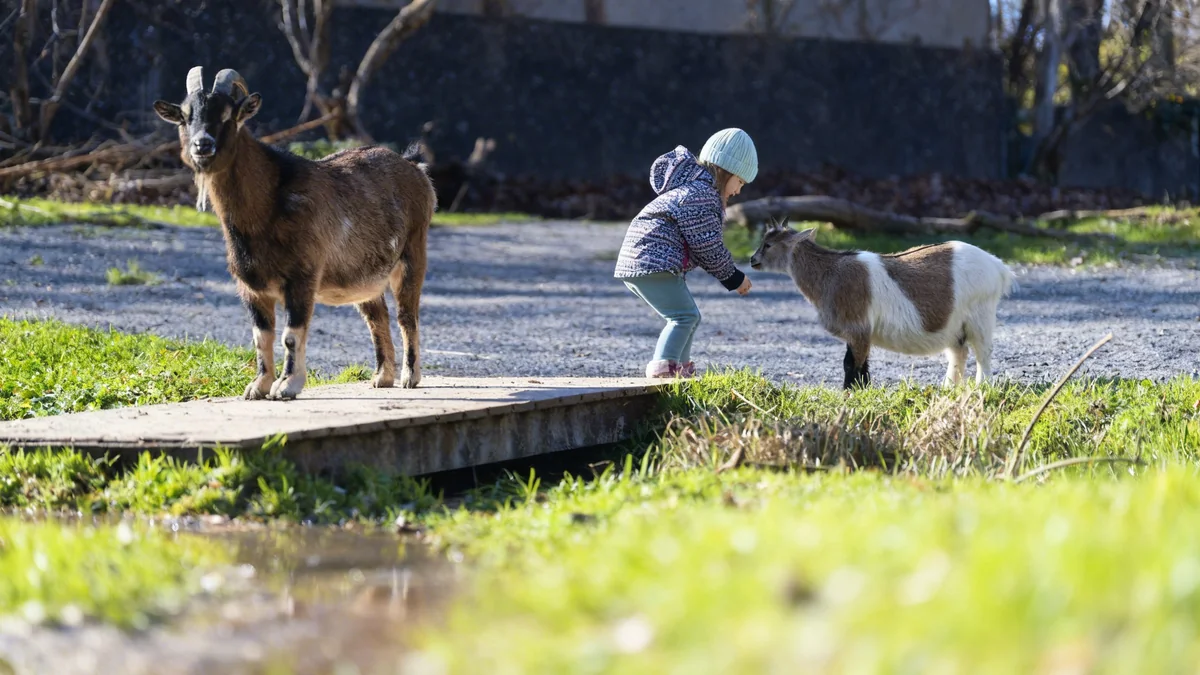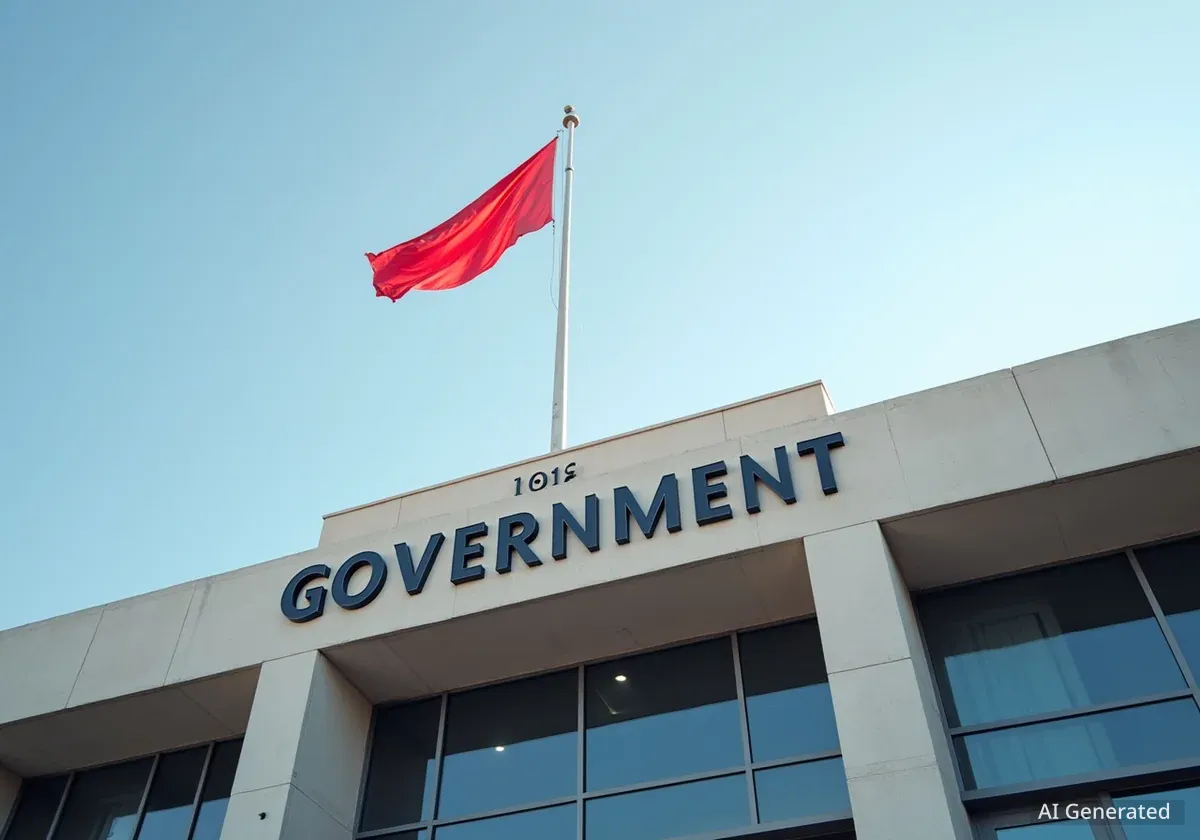Hundreds of individuals gathered in Bern on Saturday afternoon to protest against the culling of wolves in Switzerland. Demonstrators convened on Bundesplatz, calling for an end to what they described as a "wolf massacre." The protest highlighted growing public concern over wildlife management policies.
Key Takeaways
- Hundreds protested in Bern against wolf culls.
- Demonstrators called for an end to the "wolf massacre."
- The Swiss Animal Protection (STS) criticized the federal decision to authorize culls in 21 wolf packs.
- Concerns were raised about the impact on wolf pack stability and livestock protection.
Protest Draws Public Attention to Wolf Policy
Many participants arrived dressed in red clothing, symbolizing their solidarity with the wolves. A significant number of individuals also brought their dogs to the demonstration, as reported by a Keystone-SDA news agency reporter. Speeches delivered during the event urged authorities to halt all wolf culls. These calls were interspersed with rhythmic drumming performances, adding to the atmosphere of the peaceful protest.
The national demonstration was organized by the "Committee Against Wolf Culls." Several prominent organizations supported the committee's initiative. These included Wildtierschutz Schweiz (Swiss Wildlife Protection) and Tier im Fokus (Animals in Focus).
Fact: Wolf Population in Switzerland
The wolf population in Switzerland has been increasing in recent years. This growth has led to complex discussions about coexistence with humans and livestock. Authorities aim to manage the population to prevent conflicts while ensuring the species' long-term survival.
Organizations Denounce Management Practices
The Committee Against Wolf Culls issued a strong statement regarding current practices. They asserted that Switzerland is engaging in a "cruel and undemocratic game" under the guise of wolf management. The committee specifically highlighted concerns about the almost arbitrary "removal" of wolf pups, labeling the situation a "wolf massacre." This language reflects the deep emotional response from animal welfare advocates.
The public outcry follows recent decisions by federal authorities. These decisions have intensified the debate surrounding predator control and biodiversity conservation within the country. Animal welfare groups argue that current measures are disproportionate and ineffective.
"This measure does not represent a sustainable solution. It even carries significant dangers for the stability of wolf packs and the protection of livestock in Switzerland."
Swiss Animal Protection Raises Alarm
Just one day before the Bern protest, the Swiss Animal Protection (STS) released a public statement. The STS expressed profound dismay over the latest decision by the Federal Office for the Environment. This decision authorized the culling of wolves in 21 different wolf packs across Switzerland. The STS emphasized that such broad measures are concerning for the future of the species.
According to the STS, the authorized culls are not a sustainable long-term solution. They believe these actions pose considerable risks. Specifically, the STS warned of potential dangers to the stability of existing wolf packs. They also noted that such measures could negatively impact the overall protection of livestock in Switzerland. This perspective suggests that disrupting wolf social structures might lead to unintended consequences.
Context: Wolf Management in Switzerland
Switzerland has strict laws regarding wildlife protection. However, managing large predators like wolves often involves balancing conservation goals with the needs of local communities and agricultural sectors. The Federal Office for the Environment oversees these policies, aiming to minimize conflicts between wolves and livestock while maintaining ecological balance. Recent policy changes have aimed to give cantons more flexibility in managing wolf populations.
Impact on Wolf Packs and Livestock
The STS argues that the stability of wolf packs is crucial for their natural behavior and effectiveness in the ecosystem. Disruption through culling, especially of younger animals, could lead to more fragmented packs. This fragmentation might, paradoxically, increase incidents of livestock predation. Young, inexperienced wolves or lone wolves might resort to easier prey if their established pack structures are broken.
Furthermore, the STS suggests that non-lethal methods of livestock protection should be prioritized. These methods include improved fencing, guardian dogs, and enhanced herd management. They believe that investing more in these preventative measures would be a more effective and humane approach than culling. This debate highlights a fundamental difference in philosophy regarding wildlife management strategies.
- Non-lethal methods: Use of electric fences, livestock guardian dogs, and trained shepherds.
- Pack stability: Intact wolf packs are generally more effective at hunting wild prey, reducing reliance on livestock.
- Ecological role: Wolves play a vital role in maintaining the health of ecosystems by regulating prey populations.
Public and Political Debate Continues
The Saturday protest in Bern underscores the ongoing public and political debate surrounding wolf management in Switzerland. Animal welfare organizations are advocating for a reevaluation of current policies. They push for approaches that prioritize coexistence and non-lethal conflict resolution.
The Federal Office for the Environment maintains that its decisions are based on scientific assessments and are necessary to protect livestock and rural livelihoods. However, the strong public reaction indicates that many citizens believe the balance has shifted too far towards lethal intervention. The coming months will likely see continued discussions and potential policy adjustments as various stakeholders present their cases.
The situation in Switzerland reflects a broader European challenge. Many countries are grappling with the return of large predators and the subsequent need to develop effective, socially acceptable management strategies. The Bern demonstration serves as a clear indicator of public sentiment on this complex issue.




